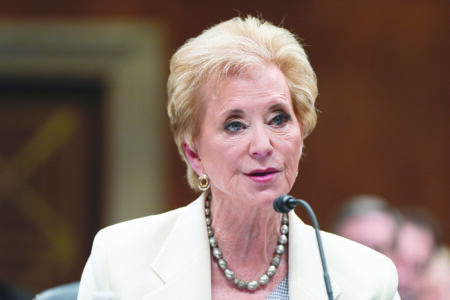Congo lingo
Northern Michigan University student teaching English in Africa

Northern Michigan University student Billy McCoy attends a traditional dance at a funeral, which in the Congo is more like a celebration of life he said. The service was for a local chief of the Teke tribe, the tribe that signed the original treaty with Pierre Savorgnon Brazza, making Congo a French colony. Hundreds of people attended the three-day service. McCoy is in the Congo on an internship. (Photo courtesy of Billy McCoy)
MARQUETTE — A third-year French major at Northern Michigan University is furthering his language skills in an unusual way.
Billy McCoy is in the Congo where he is continuing his French studies, studying the local lingala language and serving an internship as an English teacher.
He also is volunteering with a non-governmental organization that runs two refuges for abandoned children and vulnerable families in the Congo. The organization currently is working on an expansion, including construction of a new, larger refuge in the city of Pointe-Noire.
McCoy could be in the Upper Peninsula now in relative comfort, harsh winters notwithstanding, but chose a different path.
“I choose to take part in this effort because of the extreme poverty in Congo and the effect it is having on the people who live here,” McCoy said in an email.
He stressed that 60% of the population of the Congo survives on less than $2 in U.S. dollars per day.
“Schools and hospitals are poorly funded, and their workers poorly paid,
leading many talented teachers and doctors to leave the Congo and search for work abroad,” McCoy said. “Despite abundant natural resources, including petroleum, gold and diamonds, Congo remains one of the poorest countries in the world.
The people and the economy are traumatized from the aftereffects of 400 years of slavery, then colonization, followed by decades of civil war.”
With the poverty comes a multitude of social problems, he said, including homelessness, malnutrition, illiteracy, child abandonment and “survival prostitution.”
The NGO with which he works, Mwana Villages, is fighting poverty with multiple sustainable programs that combat each of those problems, he said.
“Much more than just an orphanage, Mwana Villages strengthens family structures by promoting education, self-reliance and by making family preservation a priority,” McCoy said. “Women who would otherwise abandon their children are given job training and meaningful employment, while also being encouraged to be part of their children’s future.
“Instead of prostituting themselves, young women and their babies are given shelter and food in exchange for sharing in the work at the refuge, while also receiving training with a goal of financial independence.”
McCoy will benefit from his work in humanitarian and academic ways.
“I will have a much better understanding of the day-to-day difficulties that Congolese have to endure, as well as fluency in the local languages,” McCoy said. “I will leave with a better understanding of Congolese history and culture. I will make many connections with other NGOs and potential future employers.”
He said he also will be remembered in Congo as a “moundele boboto,” which translates to “kind white man.”
So, consider cultural understanding as another benefit.
“People will talk about the work that my friends and I have accomplished as a team side by side with the Congolese people,” McCoy said, “and I will support Congolese culture in the USA and help Congolese to travel to the USA for education and work.”
The Congo, obviously, differs greatly from the U.P. weather-wise, but maybe not the way people think.
McCoy said the country benefits from a mild climate since it’s situated near the equator.
“It is seldom under 70 degrees, and only occasionally over 90 degrees,” McCoy said. “However, there is a lot of flooding during the rainy season. My professors have occasionally needed pirogues — wooden canoes — to reach their bus stops to come to school. I have seen taxis swept away by raging waters as well. People occasionally drown because the waters rise before they can escape their houses.”
There are other challenges as well.
“The infrastructure in Congo, including the transportation network and the power grid, are in very poor condition,” McCoy said. “Roads frequently wash out and are impassable, and the electricity goes out several times per week.
“Imagine a city the size of Milwaukee connected by a few paved arteries and the rest badly eroded dirt roads. If you can imagine that, you have imagined Brazzaville, the most developed city in Congo.”
The Congo also has health concerns.
“Water is untreated, and has to be boiled to be safe,” McCoy said. “Bottled water is available but expensive.”
Not only does McCoy boil his water, he uses a filter.
These are things U.P. backpackers have to undertake in wilderness areas, so imagine what it would be like for city residents having to resort to these means every day.
Malaria continues to a huge global killer, especially in west Africa, and it’s a disease from which McCoy hasn’t escaped.
“I have had malaria twice since my arrival in October,” he said, “but caught it early both times and was able to treat only with oral medications.”
He said HIV continues to be a problem in the Congo, and is compounded by the prostitution problem and what he called more deeply rooted cultural issues.
McCoy still has retained his sense of humor.
“I have not had to shovel snow since I arrived here,” he said.
That’s due to the favorable climate, although McCoy acknowledged it’s sometimes a little on the hot side, and natural disasters such as hurricanes and tornadoes are non-existent.
“Most of the people are very nice, and it is not terribly expensive to live here if one eats the local foods and stays in modest accommodations,” McCoy said. “A pale complexion and a smartphone give you celebrity status with the local children.”
On the down side, though, is the poverty, which can be disconcerting, almost depressing, at times, he said. For instance, his professor recently came down with malaria, and McCoy visibly noticed he was getting worse.
However, such an issue has the potential for something far greater — and better.
“When I asked him why he hadn’t gone to the hospital, he said he did not have the $12 for the treatment,” McCoy said. “I only had $25 left for the week, but I took him to the hospital and paid the bill.
“I have made a lifetime friend and possibly saved a life, somebody’s father, somebody’s husband. These are everyday realities.”
Studying without electricity is hard, though, especially at night in the dark, he said; McCoy said he composed this email on his laptop in the dark.
With poverty also comes problems such as theft and corruption, and McCoy has several anecdotes relating to this unfortunate connection.
“My taxi driver was arrested one day for wearing shorts and sandals, and had to pay a ‘fine’ directly to the police officer to avoid jail,” McCoy said. “This, of course, was in the form of cash slipped in the registration folder.”
Even with all the troubles, he still wants people to know about the new refuge.
“I really hope we can draw attention to the new refuge project as we still need funding to finish the construction,” McCoy said.
McCoy said he is paying for his staff through a combination of his own money and funds from his church, First Presbyterian Church of Florence, Wisconsin.
He plans to stay in the Congo until August.
McCoy has launched an entrepreneurial project to help a local woman and her family modernize and develop their currently home-based clothing business. A website soon will be launched, with sales offered in the Congo and stateside.
More information can be found at mwanavillages.org, where people can make donations.
“The cyclical nature of the orphan crisis will be broken only when we prioritize family preservation and reunification,” the website reads. “We then support vulnerable families toward self-sufficiency as a means for orphanhood prevention.”
Christie Bleck can be reached at 906-228-2500, ext. 250.




